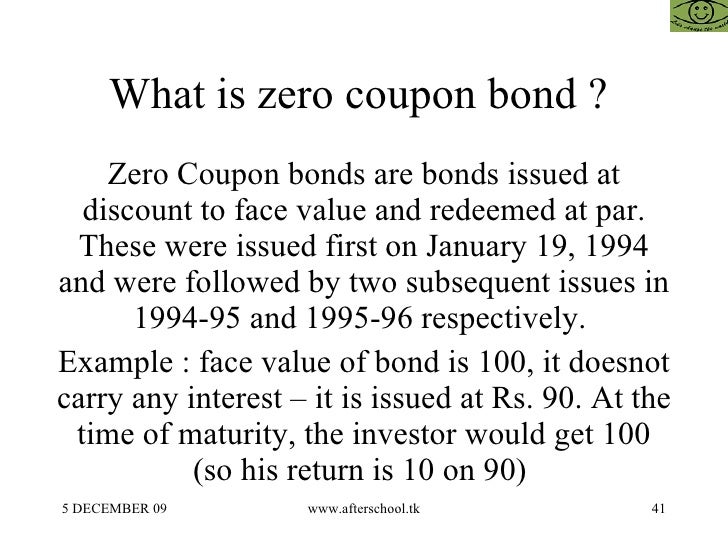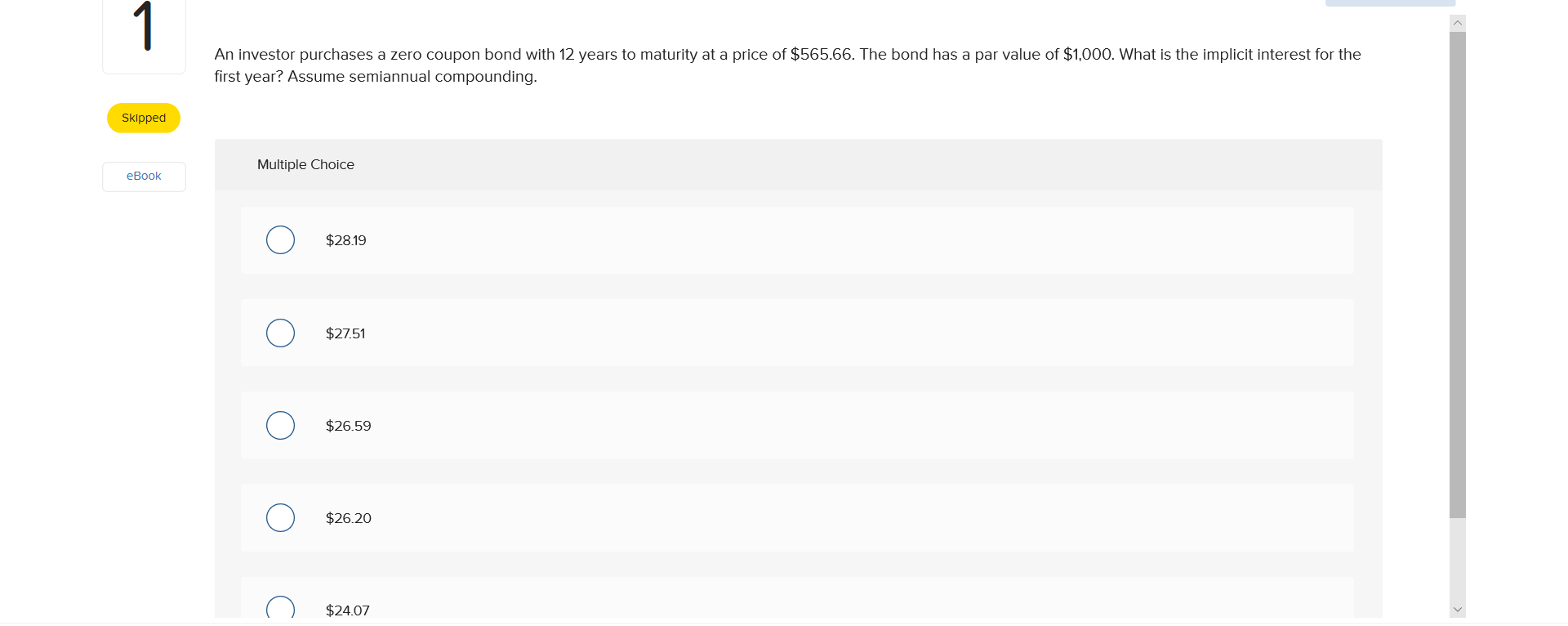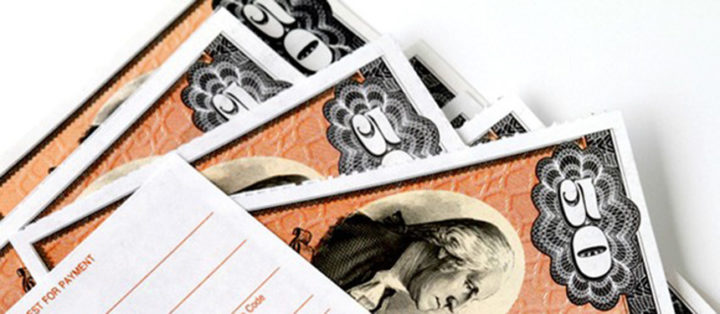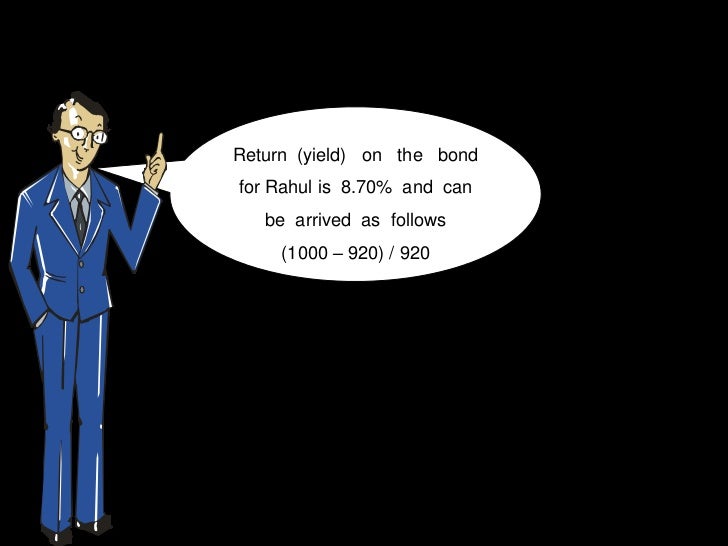38 zero coupon bond accrued interest
Zero-Coupon Bond - Definition, How It Works, Formula John is looking to purchase a zero-coupon bond with a face value of $1,000 and 5 years to maturity. The interest rate on the bond is 5% compounded annually. What price will John pay for the bond today? Price of bond = $1,000 / (1+0.05) 5 = $783.53 The price that John will pay for the bond today is $783.53. Example 2: Semi-annual Compounding Tax Considerations for Zero Coupon Bonds - Financial Web With a zero coupon bond, you are not paid any interest over the life of the bond. At the end of the bond, you get the face value of the bond. The difference with this type of bond is that you can buy the bond at a serious discount to what its end value is. For example, you may only pay 70 to 80 percent of the value of the bond when you buy it.
Value and Yield of a Zero-Coupon Bond | Formula & Example - XPLAIND.com A zero-coupon bond has higher interest rate risk than a traditional bond. ... (1 + 6.8%) 9: Expected accrued income = Value at the end of a period − Value at the start of a period = $5,317. This gain of $5,317 is made up of the unwinding of discount (the increase in present value as it nears maturity) plus capital gain portion that results ...
Zero coupon bond accrued interest
Understanding Zero Coupon Bonds - Part One - The Balance Zero coupon bonds or zeros don't make regular interest payments like other bonds do. You receive all the interest in one lump sum when the bond matures. You purchase the bond at a deep discount and redeem it a full face value when it matures. The difference is the interest that has accumulated over the years. Zero Coupon Bonds- Taxability Under Income Tax Act, 1961 - TaxWink Unlike other bonds or debentures, investment in zero coupon bonds does not give any periodic return. Therefore, annual interest cannot be taxed on accrual basis in this case like other bonds or debentures. Under Income Tax Act, gains on sale of any securities shall be taxable as long term or short-term capital gains depending on the holding period. Accounting for Zero-Coupon Bonds - XPLAIND.com A zero-coupon bond is a bond which does not pay any periodic interest but whose total return results from the difference between its issuance price and maturity value. For example, if Company Z issues 1 million bonds of $1000 face value bonds due to maturity in 5 years but which do not pay any interest, it is a zero-coupon bond.
Zero coupon bond accrued interest. Zero Coupon Bond | Investor.gov Because zero coupon bonds pay no interest until maturity, their prices fluctuate more than other types of bonds in the secondary market. In addition, although no payments are made on zero coupon bonds until they mature, investors may still have to pay federal, state, and local income tax on the imputed or "phantom" interest that accrues each year. Advantages and Risks of Zero Coupon Treasury Bonds - Investopedia If issued by a government entity, the interest generated by a zero-coupon bond is often exempt from federal income tax, and usually from state and local income taxes too. Various local... 23. Accrued Interest You purchase a bond with a | Chegg.com Accrued Interest You purchase a bond with a coupon rate of 6.4 percent, a par value of $1, 000, ... Zero Coupon Bonds Suppose your company needs to raise $65 million and you want to issue 20 -year bonds for this purpose. Assume the required return on your bond issue will be 4.9 percent, and you're evaluating two issue alternatives: ... Zero Coupon Municipal Bonds: Tax Treatment - TheStreet The interest accrues at the interest rate you obtained when you bought the bond. Using the earlier example, if you paid $500 for a 10-year, $1,000 bond getting an interest rate of 7.05%, you would...
Bond Formula | How to Calculate a Bond | Examples with Excel ... Let us take the example of another bond issue by SDF Inc. that will pay semi-annual coupons. The bonds have a face value of $1,000 and a coupon rate of 6% with maturity tenure of 10 years. Calculate the price of each coupon bond issued by SDF Inc. if the YTM based on current market trends is 4%. Chapter 6 -- Interest Rates - California State University ... Example: a 10-year bond carries a 6% coupon rate and pays interest semiannually. The market price of the bond is $910.00. What should be YTM for the bond? YTM = 3.64%*2 = 7.28% (3) Yield to call: the return from a bond if it is held until called Example: a 10-year bond carries a 6% coupon rate and pays interest semiannually. Imputed Interest - Overview, Calculation, Tax Implications In filing tax returns, zero-coupon bonds are required to declare the imputed interest. The imputed interest for the year on zero-coupon bonds is estimated as the accrued interest rather than the minimum interest like in below-market loans. It is calculated as the yield to maturity (YTM) multiplied by the present value of the bond. The value of ... Zero-Coupon Bond Definition - Investopedia A zero-coupon bond, also known as an accrual bond, is a debt security that does not pay interest but instead trades at a deep discount, rendering a profit at maturity, when the bond is redeemed for...
How to Calculate PV of a Different Bond Type With Excel Feb 20, 2022 · The Accrued Interest = ( Coupon Rate x elapsed days since last paid coupon ) ÷ Coupon Day Period. ... A zero-coupon convertible is a fixed income instrument that combines a zero-coupon bond and a ... Zero-Coupon Bonds - REC Wealth Management For example, a zero-coupon bond with a face value of $5,000, a maturity date of 20 years, and a 5% interest rate might cost only a few hundred dollars. When the bond matures, the bondholder receives the face value of the bond ($5,000 in this case), barring default. The value of zero-coupon bonds is subject to market fluctuations. Zero Coupon Bond Calculator - Nerd Counter The upper mentioned $323.01 is the actual cost of the 10 years' maturity coupon with a 20% interest rate and $2000 face rate. There is another zero-coupon bond example if the face value is $4000 and the interest rate is 30%, and we are going to calculate the price of a zero-coupon bond that matures in 20 years. Zero Coupon Bond Value Calculator: Calculate Price, Yield to ... Instead interest is accrued throughout the bond's term & the bond is sold at a discount to par face value. After a user enters the annual rate of interest, the duration of the bond & the face value of the bond, this calculator figures out the current price associated with a specified face value of a zero-coupon bond.
Bond Convexity Calculator: Estimate a Bond's Yield ... - DQYDJ Bond Price vs. Yield estimate for the current bond. Zero Coupon Bonds. In the duration calculator, I explained that a zero coupon bond's duration is equal to its years to maturity. However, it does have a modified (dollar) duration and convexity. Zero Coupon Bond Convexity Formula. The formula for convexity of a zero coupon bond is:
Zero-Coupon Bond Value | Formula, Example, Analysis, Calculator The value of a zero-coupon bond is determined by its face value, maturity date, and the prevailing interest rate. The formula to calculate the value of a zero-coupon bond is Price = M / (1+r)n where: M = maturity value or face value of the bond r = rate of interest required n = number of years to maturity 3.
Zero Coupon Bonds | Alamo Capital Buy Zero Coupon Bonds. If you are interested in buying zero coupon bonds, contact Alamo Capital by phone at (877) 682-5266 - or - (877) 68-ALAMO, by email at information@alamocapital.com, or by filling out the form below. Our experienced zero coupon bond specialists can provide you with information about the current inventory of zero coupon ...
Accrued Interest | What It Is and How It's Calculated - Annuity.org So, the formula to calculate accrued interest is: Face Value x (Coupon Rate ÷ 365) x Accrual Period That means an investor who sells a $100,000 bond with a 4 percent coupon 63 days after the bond's last payment date would receive $690.41 in accrued interest from the bond's buyer.
Bond Price Calculator – Present Value of Future Cashflows - DQYDJ Clean Price - Clean price is the price of the bond if accrued interest is ignored. This calculation relies only on the difference between market price and the coupon rate of the bond. Accrued Interest - For convenience, we have explicitly calculated the amount of the market price that is due to accrued interest. If you subtract this from the ...
14.3 Accounting for Zero-Coupon Bonds - Financial Accounting This zero-coupon bond was sold for $2,200 below face value to provide interest to the buyer. Payment will be made in two years. The straight-line method simply recognizes interest of $1,100 per year ($2,200/2 years). Figure 14.11 December 31, Years One and Two—Interest on Zero-Coupon Bond at 6 Percent Rate—Straight-Line Method
Investment Banking, Financial Modeling & Excel Blog Zero-Coupon Bond (Also known as Pure Discount Bond or Accrual Bond) refers to those bonds which are issued at a discount to its par value and makes no periodic interest payment, unlike a normal coupon-bearing bond. In other words, its annual implied interest payment is included in its face value which is paid at the maturity of such bond.
How to Buy Zero Coupon Bonds | Finance - Zacks Zero coupon bonds, also known as zeros, are distinct in that they do not make annual interest payments. The bonds are sold at a deep discount, and the principal plus accrued interest is paid at the...
Zero coupon municipal bonds maturation - ttlc.intuit.com The tax rules for zero-coupon bonds bought as new issues and held to maturity are fairly simple. Whether the bond is taxable or tax exempt, you (or your broker) have to accrue interest on the bond. That means you have to calculate the portion of the difference between the purchase price and face value that accrued to you. $500 x 0.0705 = $35.25 ...
Bond Pricing and Accrued Interest, Illustrated with Examples A bond pays interest either periodically or, in the case of zero coupon bonds, at maturity. Therefore, the value of the bond = the sum of the present value of all future payments — hence, it is the present value of an annuity, which is a series of periodic payments.The present value is calculated using the prevailing market interest rate for the term and risk profile of the bond, which may ...
Zero-Coupon Bonds: Pros and Cons - Management Study Guide Zero-coupon bonds are those bonds that are sold at a deep discount to their face value. This means that these bonds do not receive any periodic interest. Instead, the investors have to invest a lump sum amount at the beginning of their investment and get paid a higher lumpsum amount at the end of their investment.
What Is a Zero-Coupon Bond? - The Motley Fool Say you want to purchase a bond with a face value of $10,000, 10 years to maturity, and 5% imputed interest. To find the current price of the bond, you'd follow the formula: Price of Zero-Coupon...
Zero-Coupon Bond - Fincyclopedia A bond that accrues interest over its life. Accrued interest is only payable at the maturity date of the bond. More specifically, a zero coupon bond (or simply, zero) doesn't pay interest during its life, but rather it is typically sold to investors at a deep discount from its face value (i.e., the amount a bond will be worth at its maturity or due date).
Zero-Coupon Bond: Formula and Excel Calculator - Wall Street Prep Zero-coupon bonds are debt obligations structured without any required interest payments (i.e. "coupons") during the lending period, as implied by the name. Instead, the difference between the face value and price of the bond could be thought of as the interest earned.
Accrued Interest - Bond Dirty Price vs. Clean Price - GlynHolton.com It is the bond's accrued interest. Exhibit 2: A bond's market value (dirty price) can be disaggregated into a clean price and accrued interest. If we add the two graphs of Exhibit 2 together, we get the graph of Exhibit 1. We called the quantity depicted in Exhibit 1 the bond's market value, but another name for it is the bond's dirty price.
Accounting for Zero-Coupon Bonds - XPLAIND.com A zero-coupon bond is a bond which does not pay any periodic interest but whose total return results from the difference between its issuance price and maturity value. For example, if Company Z issues 1 million bonds of $1000 face value bonds due to maturity in 5 years but which do not pay any interest, it is a zero-coupon bond.
Zero Coupon Bonds- Taxability Under Income Tax Act, 1961 - TaxWink Unlike other bonds or debentures, investment in zero coupon bonds does not give any periodic return. Therefore, annual interest cannot be taxed on accrual basis in this case like other bonds or debentures. Under Income Tax Act, gains on sale of any securities shall be taxable as long term or short-term capital gains depending on the holding period.
Understanding Zero Coupon Bonds - Part One - The Balance Zero coupon bonds or zeros don't make regular interest payments like other bonds do. You receive all the interest in one lump sum when the bond matures. You purchase the bond at a deep discount and redeem it a full face value when it matures. The difference is the interest that has accumulated over the years.
















Post a Comment for "38 zero coupon bond accrued interest"